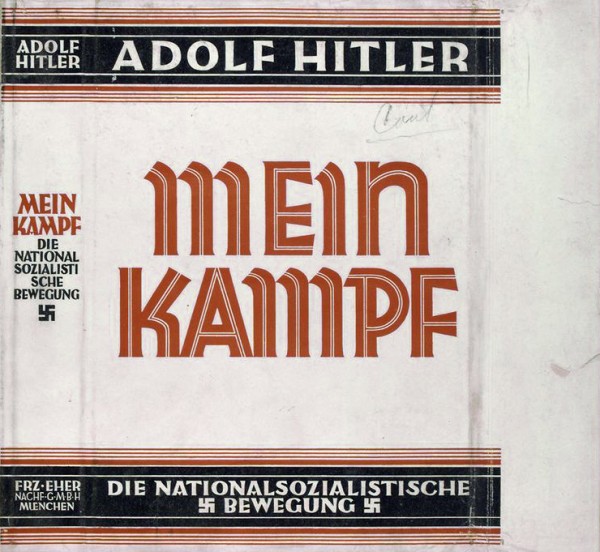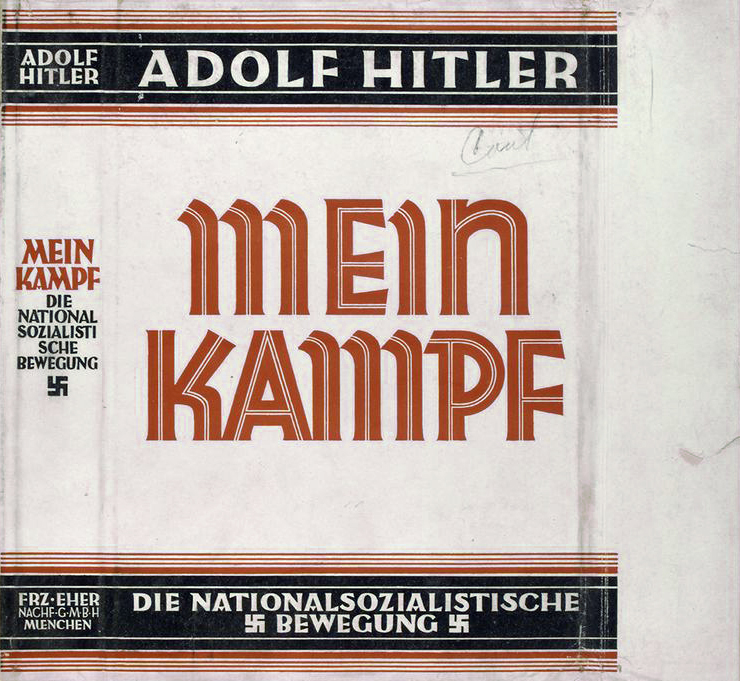
For the past few weeks I’ve seen from various sources on Facebook, and most recently on Tablet, a growing concern about a potentially frightening new trend: Featured on several Amazon.com best-seller lists are e-book editions of Adolf Hitler’s Mein Kampf. The first responses I’ve seen have been understandably negative, coming from some reasonably frightened people. After all, this is a text that illustrates, in clear terms, a plan for the Holocaust. Naturally, that people are still reading it nearly seventy years after Hitler’s death, especially in bestseller-level numbers, can be concerning.
I have a confession to make, readers: I have contributed to this trend. Yes, I, a nice Jewish girl from Pittsburgh, have purchased a copy of Mein Kampf. Before I am branded a self-loathing Jew, however, allow me to explain the context. I was in Poland, on a Holocaust study seminar, learning in as much as possible about what happened there seventy years prior. Of course, I knew about the Holocaust, had learned about it in varying degrees of intensity since I was ten years old. (More, I should note, in Hebrew school than in secular school, which I find problematic in retrospect. This is a separate issue, however.) But in all that time, there was one thing that I felt was implied above all else: a clear distinction between us and them. Us, the Jews and them the Nazis. Us, the Americans, and them, the Germans. Of course, in the circumstances of the War, we were fundamentally different groups, and one group in particular was a terrible oppressor and murderer. I realized, however, while standing in the manmade gas chambers of Auschwitz and the crematorium of Majdanek built by human hands, that while the Americans, the Nazis, and the European Jews were all fundamentally separate groups, each in their own distinct circumstances and distinct roles, they were not members of a different species. The Nazis—and even Hitler—were also humans, and to me, this is the most frightening aspect of the Holocaust of all. Humans, not monsters, did this. As one of my fellow seminar members noted at the end of the trip, evil is something that exists within the human heart, and if a person is pushed to the right circumstances, it can bare its teeth. If this is the case, shouldn’t we push ourselves to understand how exactly those circumstances pushed a people to do such great evil, not to excuse it—for of course those events were inexcusable—but to understand it, and in so doing guard ourselves against those demons that live in our own hearts? To me, reading Mein Kampf is an important part of that.
Which is not to say that this is an easy thing to do. Mein Kampf is hard to read, especially as a Jew. It has been, at times, an emotional experience. To see horrifyingly bigoted depictions of my people—and by extension many of the people I love, and, indeed myself—is difficult enough, never mind the historical hindsight. While reading it, I could not help but think about all the eyes who had also read those words—the S.S. officers who read it in uniform, all the people who had seen the book before Hitler’s rise and dismissed it. I thought about the people who didn’t believe in its message, but read it out of fear of their government, convincing themselves to accept its premises and their ramifications. Most of all, I thought of the man who penned the book, whose very thoughts stared at me from the surface of its pages. Just the mere fact that he had thoughts, however terrible, written in ordinary language reinforced that he, was, in fact human. Not of my people, not of my mind, not of my spirit, not of my ethics, but of my species. If he was capable of becoming and doing as much evil as he did, human beings have that potential. It is only in acknowledging this that we can prevent it.
In Tablet, Stephanie Butnick postulates that the rise of Mein Kampf’s popularity now might have something to do with the e-book format. She notes that it is easier to be subtle in what you’re reading with an iPad or Kindle than with a print edition, that curiosity as to what is in the book can now be satiated privately, without a reader fearing judgment from a bookseller or from the person next to her on the bus. I hold that allowing this curiosity is better than the alternative, making it taboo. If we do the latter, we disallow people an opportunity to learn from the past and what a person can come to under the proper circumstances. As I have said in a previous post, we must learn from the past, even from the horrible past. Otherwise, it is bound to repeat itself.
Dani Plung is a student at the University of Chicago.

